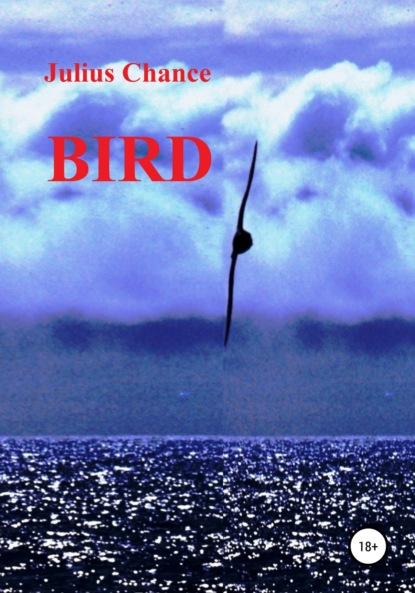
Полная версия:
Julius Chance Bird
- + Увеличить шрифт
- - Уменьшить шрифт

Julius Chance
Bird
“Birds of prey do not sing” (German proverb)
His glance slid to the dumpster where a seagull the size of a pig was sitting. What?! Antony turned his eyes back and froze… Two hemispheres were fighting in his head. The right exclaimed that such a thing could not be possible, and the left insisted that he should believe his eyes.
For a couple of minutes he stared at the giant gull as it heavily stepped from paw to paw along the edge of the garbage can, which swayed under its weight. Then Antony smoothly pulled out his smartphone and took a picture of the miracle. As he continued to stare, he reasoned that, as a university-educated man, he probably should have been aware of the existence of such superbugs. But he has not been! Through the long chain of logical reasoning, he concluded that he was just lucky enough to be the first to come across a hitherto unseen mutant.
The appearance of which could result from a radiation or gene pollution of the environment. For instance, as a consequence of leaks in the accident at the Japanese nuclear power plant Fukushima. From there, he could have flown here to San Francisco. Why not?
Such considerations led Antony to delight and he decided to urgently attract the attention of other people to his discovery, before it flew across the ocean. After all, it could well be in a single copy! He slowly turned his head from side to side, trying not to scare away the object of science – no one at this early hour! What a bad luck! Antony froze like a mannequin and waited. Ten minutes later, he noticed the shaking figure of a man on a morning jog in the depths of the park. It was getting closer. Soon, a college-looking guy in his twenties, wearing jeans and eating a McDonald's hamburger popped up nearby. He crumpled the bag and threw it into the tank, almost hitting the scientific discovery. The miracle fearlessly turned his head away from the flying ball, and the student ran on past it…
“Excuse me, what kind of bird is that?” Antony shouted after him, pointing at the feathered wonder.
The guy turned around in surprise: “It’s an albatross!”
In an hour, Antony had fished out almost everything about albatrosses from the Internet on his smartphone: that it is the largest flying bird in the world with a wingspan of up to three and a half meters and a body length of up to one and a half meters; that, like an ocean bird, it feeds on fish and, like a bird of prey, it does not sing, just screams instead, and that it is extremely rare. А special admiration as an engineer Antony felt from the fact that albatross can catch headwinds and updrafts so masterfully that she can soar over the ocean for days without landing and almost without flapping its wings.
He had heard the name of this bird before, and as a child he even rested in a camp with such a name, but to this day he had never seen it and had no idea how actually huge and beautiful it was. He had never been before to a country where albatrosses live even in small numbers – he was born and studied in Russia, worked in Australia, and visited only Austria. In the United States, he was the first time. Antony called a taxi to the nearest intersection, got up from the bench, and walked down the path to it.
The car was already waiting for him. Antony jumped in: “To the St. Francis Yacht Club.” The taxi driver looked over his shoulder at the passenger with interest. “A university friend invited me to take a ride to Alaska.” Boasted Antony “On your own yacht?” the taxi almost jumped on his butt of curiosity. “Sort of,” Antony said. “Great! I wish I had such a friend!” taxi-driver exclaimed. Antony left his remark unanswered. The driver's chatter has annoyed him and distracted from pondering why Victor would suddenly has remembered him after twenty years.
The caretaker was already waiting for Antony at the entrance to the club. To the right of the harbor the famous Alcatraz prison island was in clear view, to the left was the equally famous Golden Gate Bridge. It was apparent from the yachts moored that this club was an elite one. The caretaker escorted Antony to pier seven. Victor’s motor yacht with the unusual name ‘The Trackless Hero’ was impressive. Sixty feet long, with a closed wheelhouse, freshly painted in blue and white, it was one of the best yachts in the harbor. Feeling a mixture of envy and pride for his friend, Antony ran up the ramp.
Конец ознакомительного фрагмента.
Текст предоставлен ООО «Литрес».
Прочитайте эту книгу целиком, купив полную легальную версию на Литрес.
Безопасно оплатить книгу можно банковской картой Visa, MasterCard, Maestro, со счета мобильного телефона, с платежного терминала, в салоне МТС или Связной, через PayPal, WebMoney, Яндекс.Деньги, QIWI Кошелек, бонусными картами или другим удобным Вам способом.



